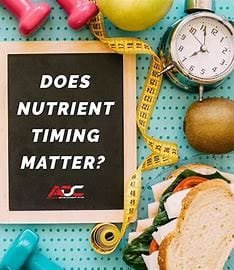Introduction

The world of nutrient timing has received much attention in the realm of health and fitness. Simply put at its core, nutrient timing means planning the consumption of nutrients—mostly carbohydrates, proteins, and fats—schedule relative to your workouts for best performance, recovery, and muscle building. The ability to understand the role of nutrient timing will certainly make all the difference for any fitness enthusiast—athlete, bodybuilder, or otherwise.
What is nutrient timing?
Nutrient timing is planning the intake of specific nutrients at specified times relative to exercise. Two key times are important in nutrient timing: before and after exercising. Pre-exercise nutrition prepares the body for work, while post-exercise nutrition is important in recovering the body and repairing muscle.
Pre-Exercise Nutrition: The reason for having food before exercise is to replenish the body. The way this is achieved is by consuming a meal or snack that is rich in carbohydrates for energy and protein in order to conserve the muscles. Ideally, a meal should be taken 30 minutes to 2 hours prior to exercise. Foods for consumption before exercise include oatmeal, bananas, yogurt, and lean meats.
Post-workout nutrition: Immediately after a workout, your body enters a recovery phase and needs to replenish glycogen stores and repair muscle tissue. At this time, the intake of protein is crucial because it helps stimulate muscle protein synthesis. A balanced post workout meal or snack, containing both carbs and protein, should be consumed within 30 minutes to two hours after exercise. Examples include a banana protein shake, grilled chicken and brown rice, or a smoothie full of fruits and protein powder.
Why Nutrient Timing Matters Improved Performance: The intake of proper nutrients at the right times will enhance exercise performance. Carbohydrates remain the most readily available source of energy for the body, in particular when high-intensity workouts need to be done. Good-timed carbohydrate intake improves endurance and delays fatigue to ensure a more effective workout session.
Improved Muscle Recovery: Once severe workout sessions have torn microtears in muscle fibers, the body needs to utilize this protein for the repair and rebuilding of the torn muscle fibers. Upon taking protein after a workout session, amino acids are utilized right away for the restoration of muscles, reducing soreness and aiding growth. Preliminary research studies indicate that adequate protein intake after a workout session significantly enhances muscle repair and recovery in general.
Muscle Growth and Retention: Nutrient timing for building muscle is critical. Ingestion of carbohydrates and protein after exercise results in insulin release, further aiding in the growth and recovery of muscles. This combination not only feeds the body but also helps retain lean muscle mass during weight reduction or caloric restriction.
Optimized Hormonal Response: Nutrient timing also influences critical hormonal levels responsible for muscle growth and fat loss. The most quoted hormone is insulin, which affects nutrient uptake into cells—the process favored after exercising. Effective post workout carbohydrate-protein intake can, therefore, optimize insulin for efficient nutrient uptake and recovery.
Weight Management: To lose or maintain weight, nutrient timing also helps an individual manage their hunger and cravings. The intake of protein and carbohydrates post-workout increases feelings of satiety and, therefore, decreases the possibility of overindulging in other meals taken later in the day. Pre-workout meal planning may help an individual manage calories overall.
Practical tips for nutrient timing

Plan Ahead: Think ahead to your workout days and plan meals and snacks around those times. This way, you know you are properly fueled prior to working out and ready to recover afterwards.
Choose Quality Foods: Focus on whole, nutrient-dense foods for both pre- and post-workout nutrition. Prioritize whole grains, fruits, vegetables, lean proteins, and healthy fats over processed foods.
Stay Hydrated: Usually, this is the under exercised factor. Hydration is crucial to performance and recovery. Hence, ensure proper water intake before, during, and after exercises.
Listen to Your Body: Bodies react in different ways to nutrient timing. Observe how your body reacts to these different foods and strategies and proceed with the tactics you deem appropriate based on response.
Try Out Timing: Some sort of guideline, but personal requirements differ in terms of intensity and duration of workouts and personal needs; one has to try out different intervals and see what gives maximum performance and recovery.
Conclusion

Nutrient timing is a potent addition to any fitness program, impacting performance, recovery, and just plain old health. Understanding the critical periods of nutrient delivery can help maximize what an athlete or fitness enthusiast gets out of their training. As with any nutritional strategy, consider individual needs and desires. Your nutrition plan can take your training and recovery to new heights with careful planning and attention to nutrient timing, all while supporting your fitness journey.



